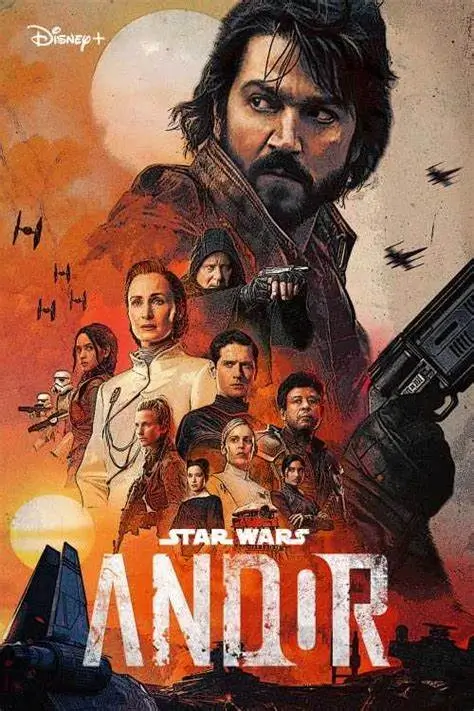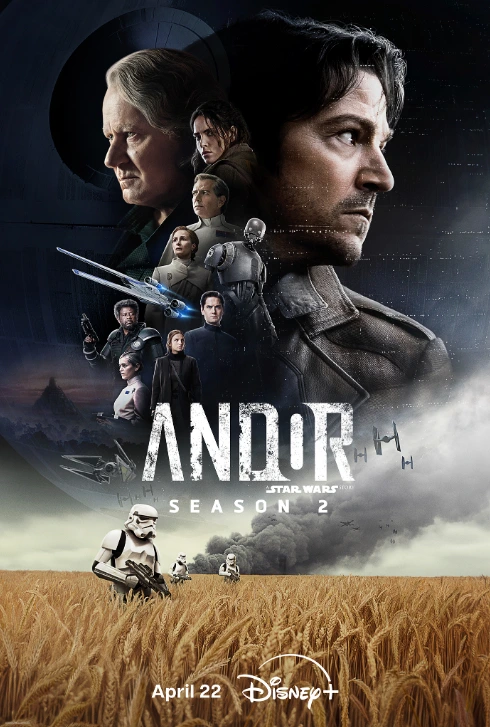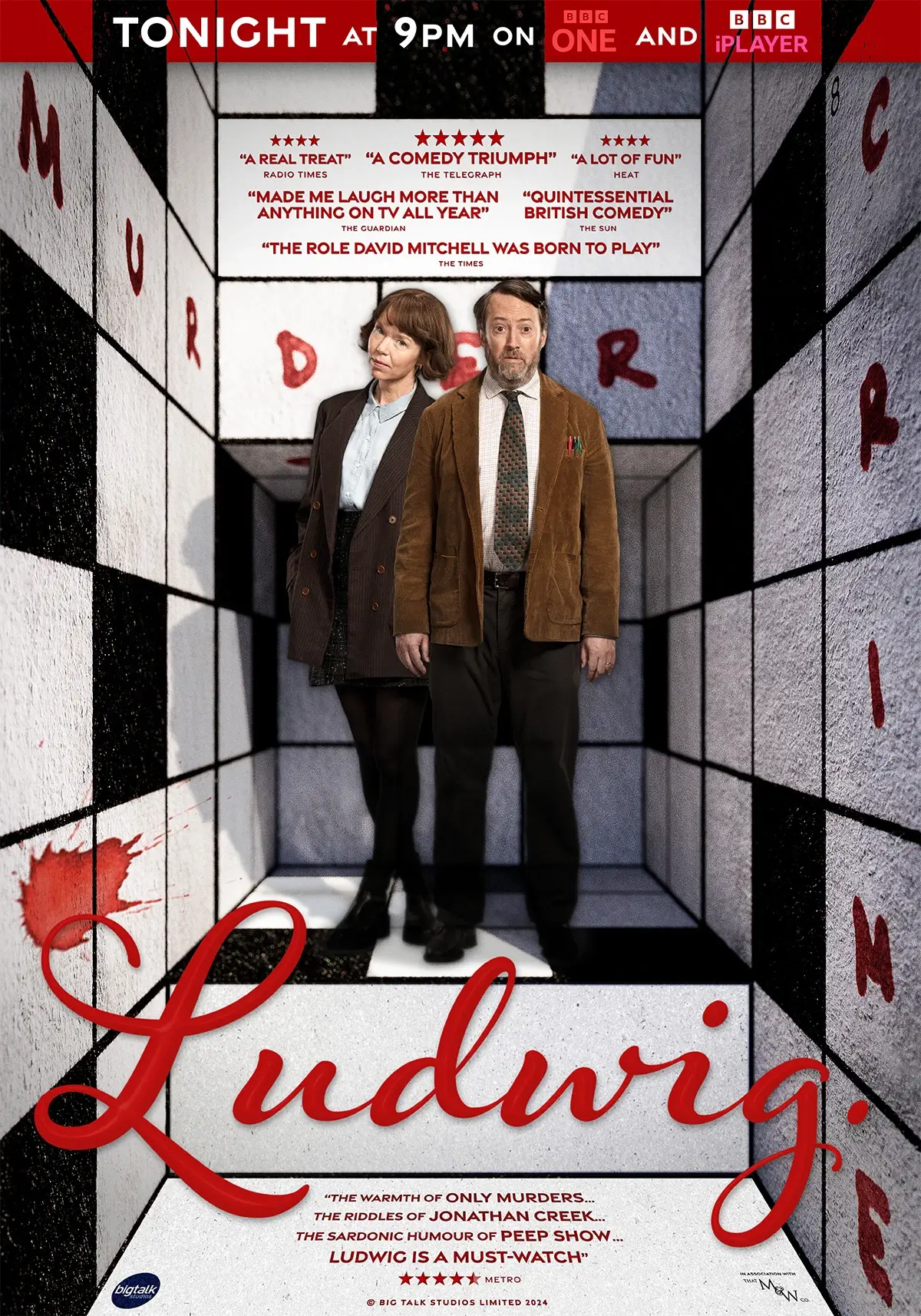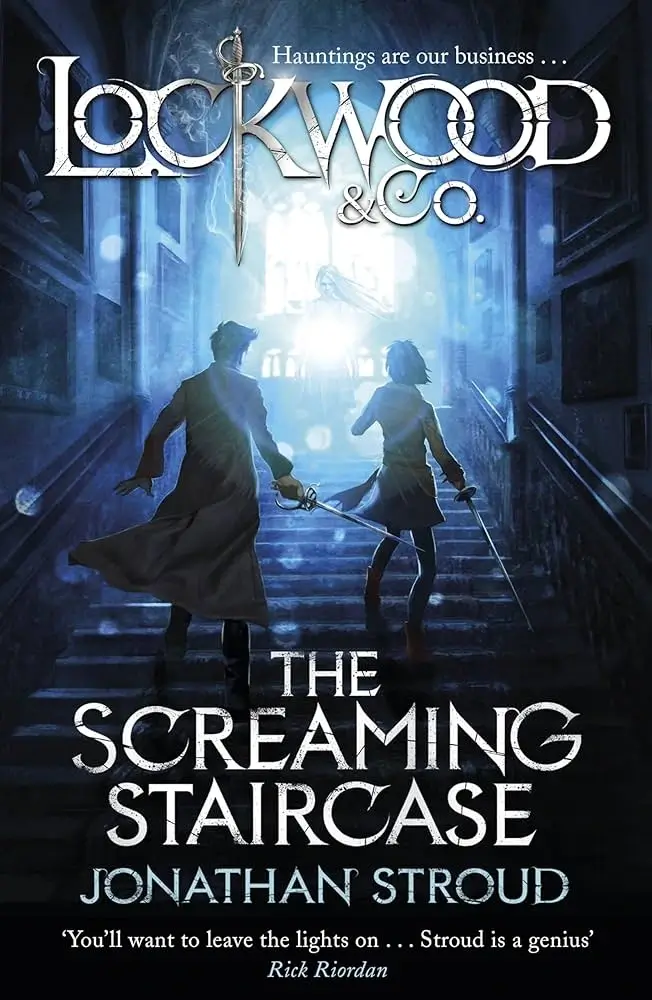I must admit that I am not a Star Wars fan. I have seen all the 9 films, when I was sick for a week and decided that was the best time to catch up. And more recently I’ve tried to give the other series a shot.
I, however, certainly didn’t enter Andor with high expectations. In fact, I was intrigued by the trailer, then lost interest when the Star Wars label was plastered over it. Because almost everything they’ve made recently (and since) has been utter shit, no other way to say it.
Oh, how wrong I was. Andor really did itself a disservice by coming out at a time when people are fed up with bad Star Wars shows, because it’s one of the best shows I’ve ever seen.
Yes, it can be slow at times. Yes, the first few episodes are a little too much setup and exposition, making me wonder if I wanted to keep watching. (To the point that I actually took a break after that and only finished the show a full year later. This might shine through in my review as I forget names, events or characters from the earlier episodes.)
But I will give it a 9 out of 10 and can actually recommend it to, you know, anybody with a brain.
This review is spoiler-free, until the spoiler area all the way at the end (after the conclusion).
What’s the idea?
We meet Cassian Andor, a guy just trying to survive and find his lost sister.
Soon enough (like, really soon) things take a turn for the worst and he is forced to flee from the Empire, kickstarting a story full of rebellion, missions, and the empire trying to … strike back.
What did I like?
My short review summary at the start really says it all.
The dialogue is exceptional. The show is full of great quotes and great starters/enders, without dialogue becoming too unrealistic or happy with itself. It’s succinct without being obscure, which means you want to sit up and pay attention when watching the show. You know you’ll be rewarded with faster (or deeper) understanding of somebody’s actions if you pay a little more attention.
To me, it’s the right balance between “beautiful writing” and “clear, practical writing”. I was never confused about what was happening or what people were actually saying, but the show also never fell into the trap of having every character literally state their feelings, goals, backstory, etcetera.
The show looks and sounds good. The actor performances are great all around, even minor side characters. (In fact, if I have to pick a weak link, I might even pick the man Andor himself. Though not a bad actor, his voice does sound very much the same on almost all lines, as if he can only speak in one or two ways.)
The show does not rely on big battles or action sequences. But they are certainly in there, and they are done well. Grounded. Short. Creative. With real stakes.
The things that actually make a story worth watching—not flashy lightsabers and endless exploding ships.
Despite having its share of strong dialogue, it also does a great job at “showing, not telling”. Almost everything is shown through some smart event that is both interesting and informative, both clear on the surface but with hidden depths.
I can’t remember a single instance where I was annoyed because something was blatantly, literally told to us. A scene that was clearly only meant as 10 minutes of exposition. And all that in a show filled to the brim with storylines and information to get across.
Most of all, I liked the simple fact that this series felt made because people had a story to tell. Not because they wanted to milk some IP, not because they wanted a thousand cameos or more “content”.
No, they actually had a story they wanted to tell, and they used unknown characters and places (on purpose!) to do so.
This becomes even more clear once you realize that this single season would have been three seasons in any other show nowadays. I can’t add much without spoilers, but I’ll just say that the show basically executes multiple story arcs (of 3 or 4 episodes each) one after another.
This means that the show actually has a constant stream of interesting events and a good pace at which things are planned, executed, and dealt with.
What did I not like?
Yes, the first few episodes are slow. They are almost entirely expositional, giving lots of background information, sometimes quite literally with a lot of flashbacks. They’re still interesting in many ways, and all that they introduce becomes important later, but that doesn’t take away that it didn’t feel like the most exciting introduction. It was just executed well enough that I kept watching.
(The reason for my full year break was also simply the fact that I am very busy and watching tv shows is on position #100 of my priorities. In the mean time—in more than 12 months—I only watched one other season of one other show.)
I just praised the show for fitting almost 3 seasons into 1 season, without ever feeling rushed or poorly paced—but it has a downside! Around halfway through the season, what seemed to be the biggest arc is basically … done. Which means the show enters this weird “downtime” for half an episode where it needs to pick itself up again.
Besides those two points? I really cannot find any more criticism to add.
Why the show is better than just good
Now, all the pros and cons mentioned above would usually average out to a 7 or 8. Yes, the story is great, and the bad parts are small, but you need something more exceptional or outstanding to reach a 9 or 10.
(Because a 10, to me, really means flawless masterpiece in every possible way. Which also means that handing out a 6 doesn’t mean I find a show terrible. It’s actually quite positive, because it’s quite a way towards the ideal flawless masterpiece.)
For me, this show did punch slightly above its weight. It constantly makes decisions, large or small, that I wouldn’t see in another show but made this story much stronger.
I’ll mention three of them without giving true spoilers.
The first episodes show flashbacks from Cassian Andor. Where he came from and how he ended up where he is now. He comes from a tribe on another planet … which means they speak another language. A language that is not explained, translated or subtitled in any way. You actually have to figure out what they might say as you go, and it’s weird, and effective, and it works.
Similarly, the show doesn’t really do “generic places”. Even when you end up with prison scenes for several episodes, that prison has a unique structure, and rules, and mechanics. I’ve seen countless stories (books, films, series) with a “prison”, but this show is perhaps the only one I’ll actually remember. The same is true for other settings, places, and even spaceships.
Thirdly, the show subverts expectations and ends up in, well, unexpected places. But never in a way that causes whiplash. There’s always good build-up, a logical foundation, something that makes you say “ah, of course we’re heading that way” after it happened.
But most of all? My mostly emotionless, uncaring brain did feel emotion while watching this show. The feeling to pump your fist and charge through a brick wall when the rebels were fighting for freedom. Almost tears in my eyes in some scenes. The show does not try to be melodramatic in any way—it does not seek your tears or your cheers—but finds them just by virtue of being well-written.
Perhaps this is unintentional shade thrown at all other modern TV shows and how terrible they are. Perhaps it’s because the show is about freedom and fighting for just being able to live, something with which I unfortunately have a lifetime of experience.
(Not in the literal sense of Andor, and I’m not from a war-torn country, thank the lords. There are levels to freedom and fighting for it. This is a discussion for a whole other time—but isn’t it great that a show is solidly about that and prompts that discussion?)
Conclusion
Yes, I’m trying to keep these reviews shorter than they’ve been in the past (when they were mostly Dutch). Without spoilers, I do not have much more to say.
The show does pretty much everything right that a story can do right. In fact, it has so much story that it tells multiple arcs in a single 12-episode season.
I don’t usually like it when shows require the following warning, but it does feel like I have to say “give it a few episodes”. Or: “Watch the first 4 episodes, and then decide if you want to keep going.” The first are slower and more expositional. The show really ramps up, more, and more, and more, as you get further.
That’s it! I’ll try to watch Andor Season 2 as fast as I can, but as you know now, that might mean being a year late to the party again.
Spoiler Area
Below I’ll add some more examples or reasons for my verdict, with the help of spoilers.
Dialogue Lessons
I’ll give two examples of dialogue, the first ones I remember.
At the start of the show, there’s this great first scene between Brasso and Andor. We haven’t seen them together before—we’ve barely started the show—and yet this short scene gives us a wealth of information in an interesting way.
Why?
- Andor asks where Brasso was last night. He answers truthfully, obviously.
- Then he says: “No. You were doing this other thing.”
- Brasso catches on and realizes Andor needs his help to cover something up. And he gives the help without hesitation.
- Together, they invent some alibi on the spot in a way that’s also funny (to me), because they’re trying to make it seem like they are “honestly remembering” how yesterday night want.
There was no big hug. No “Hey, my best friend! How you doing?” No long conversations about their history and their amazing friendship.
No, just a short scene that makes you sit up a little more and pay more attention, because it shows all the information you need to get out of it.
Another example is much simpler, from a later episode.
- Vel and Cinta sit in Ferrix, talking about what to do now.
- Cinta wants to stay, monitor the place, wait until Andor returns.
- Vel asks “What’s your alibi? Why are you here?”
- Cinta says “Oh, I’ll just say I’m a rich daughter on the run from her family.”
- Vel says “That’s cold” and the topic is instantly dropped
Now, at the time, I was like: “Eh, what? Cold? Sounds like a plausible backstory to me!”
It took a few seconds to connect the dots and realize she just described Vel. (I don’t know if it’d already been revealed that Vel was related to Mon Mothma at this point. I, at least, had forgotten that. Even if I hadn’t, the dialogue still works on two layers.)
This is how you get dialogue that wastes no time and is always interesting.
- Because it’s very short and accomplishes multiple things at once: surface level (to keep the plot moving) and deeper level (character, information, whatever).
- You have to pay attention and somewhat “play the game” to actually get all the layers.
Oh, another great example is a scene near the end. Where Mon Mothma gets in the car and accuses her husband of gambling again. It comes out of nowhere, which confuses you for several seconds. But you know this show, you know there’s a reason. So you sit up straight and think harder, until the answer reveals itself after a few seconds.
She knows it’s not true. She accuses him to plant the seed of an excuse for her financial troubles (which she’s been trying to solve for several episodes now), while basically confirming that the Empire is spying on her. His pleas of innocence are completely justified, yet you understand what she’s doing and even respect the intelligence behind it.
All of that with just one dialogue scene of two minutes, with an unexpected but well-chosen topic. (Again, don’t start writing all your dialogue scenes from weird topics that come out of nowhere :p Use these tools in just the right moment and just the right amount.)
The Prison Break Sequence
This is just an example on how to build up to a climax and how to pace a transformation of character. (Without being obvious about what you’re even shooting for in the story.)
We meet Kino Loy—the shift manager in which Andor is forced to work—as immediately antagonistic. You don’t believe he is going to respond kindly to ideas of breaking out or rebellion … until you do. The sequence of events that lead to his transformation is completely logical, yet unexpected.
Andor starts the episode by asking “How many guards on each level?”, to which Kino doesn’t even want to give any response.
He ends the episode by asking the same question, and now Kino responds. And for some reason, I’d never been this excited to watch the next episode of something in my life.
So much happens within that episode, but it’s never overwhelming. Andor knows how to pick only a handful major moments—major turning points—from a storyline. How to focus on those and execute them well (with strong dialogue and “showing, not telling”), to get the holy grail of storytelling: big change in a short period of time, without feeling rushed.
The second part of that is, of course, to deliver on this promise of a great prison break sequence. And they do.
- There’s some fighting and action, but not too much.
- Some people make it, others don’t.
- There’s some convincing of other levels, but not so much it becomes stupid.
- The action happens in cramped spaces, twisting tunnels, across different levels. In other words, it’s creative and interesting.
- There’s one smart twist to their plan: short circuiting the equipment by flooding the room.
- And even though the outcome is exactly the one we expected and worked towards … it still has an unexpected element: Kino who reveals he cannot swim and thus cannot join the escape.
This is the answer to the writer’s challenge of delivering on promises while also having plot twists (and not being predictable in general).
Deliver the promise (“breaking out”). But deliver something extra. Or deliver it in an unexpected way.
This is, again, shown instead of told. We see Andor trying to saw through the water tube at the toilets. At the time, you’re like “I’m not sure how this is helping”. But you remember it, even keep thinking about it.
The answer to how it will help is revealed during the breakout, making it tense and interesting all the way through.
How many stories would’ve just told this? We’d get this secretive whisper scene about “the plan”. Dialogue that literally tells the audience what they intend to do, and how, and why, and so forth.
Andor doesn’t do this. It shows, which is more interesting, more impactful, and more efficient.
The Heist
Just to be sure, this is what I mean when I say Andor has multiple story arcs in one season.
- Exposition
- Heist
- Prison Break
- Ferrix Revolt
Each of these is basically a 3-episode arc. A 3 act structure if you will.
The same is true for the Heist. Once introduced, you immediately assume “ah, this is a heist show, and this is what we’ll build towards in the finale.”
But no. It’s planned, executed, and handled within a few episodes. And to me, that felt like the proper pacing. Not the extremely drawn out pacing that most modern shows seem to go far. (Again, how many shows would have used this single heist as the one arc for the whole season? And how many of them would’ve been boring for 9 episodes, then perhaps fun for 1?)
The show is named Andor. It’s more than fitting to simply follow Andor on whatever he does, instead of focusing the whole season on some specific external event (such as a heist or prison break).
Like the Prison Break, the Heist is action done well. True stakes. Not just fighting, but tension because stealth and secrecy is needed. Because you know your little team is outnumbered and weak, and everything has to go right to win. Some people make it, some don’t.
Even when they do make it, the aftermath isn’t just a bunch of cheering rebels drinking champagne and living the rest of their lives in wealth and peace. It’s immediate backstabbing and trying to get a bigger share. Andor tries to live this life of peace, but is arrest for looking suspicious on a beach. Which is just the perfect metaphor for how a tyranny works: arrest and punish everyone for absolutely nothing.
It’s also the perfect, simple way to put Andor on the path towards change. From becoming a survivor to becoming a part of the rebellion. Because now he sees and experiences the oppression firsthand, in multiple ways. He is not told how terrible the Empire is—in fact, I think that’s never even said until Meerva’s speech at the end—he is shown time and time again.
Even with all the storylines, the action, the multiple story arcs, the show still fit a natural transformative arc for Andor. (Though the nice ending does make me wonder what they’re going to use for season 2.)
That’s why I can give this show such a high rating. That’s why I can forgive it for some slower or more “boring” stretches.
That’s all I have for now!



